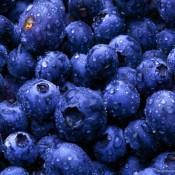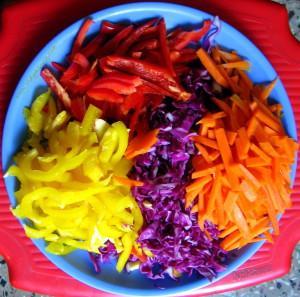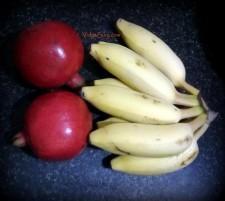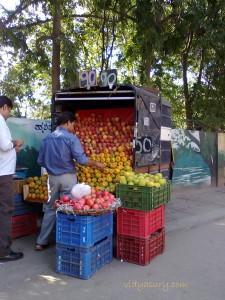
V is for Vitamins for Vegetarians on Day 22 of the #AtoZChallenge.
We don’t need a rocket scientist to tell us vitamins and minerals are mandatory components of our diet and there is research to prove that vitamins help reduce the risk of cancer and heart disease and a host of other health issues. Remember Science lessons from school? A diet rich in fruits and vegetables can give you all you need and there are supplements to make life easier.
What about vitamins for vegetarians?
Vegetarianism has been gaining popularity over the last few years. There are studies to show that a balanced vegetarian diet can help you live a healthier life by lowering hypertension, obesity and protection against a variety of cancers. There is a misconception that vegetarians cannot get all the vitamins, minerals and proteins they need from their diet. Vitamin supplements can be a blessing (with your doctor’s advice).
Here’s a look at essential vitamins and sources for vegetarians.
Vitamins for vegetarians
Beta-carotene
This is an antioxidant that you get from carrots, kale, turnip greens, mustard greens, butternut squash, spinach, sweet potatoes, green peppers – it is a long list. This antioxidant gets converted into vitamin A in our body which promotes healthy vision and skin and strengthens the immune system. It is best to get your beta-carotene from fruits and veggies rather than vitamin supplements.

Calcium
We need calcium for bone health and to prevent osteoporosis. The richest source for calcium is dairy products which include milk, yogurt, and cheese. Should you take vitamin supplements for these? If you can’t tolerate dairy, probably, but not if you are over 70 or if you have kidney stones. If you can take them, make sure to get your doctor to prescribe vitamin D for better calcium absorption.
Folic acid
Folic acid or folate or Vitamin B9 is sourced from yeast extracts, sunflower seeds, dark green leafy veggies, bean sprouts, beans, asparagus, peanuts, bread, pasta and citrus fruit juice, besides fortified breakfast cereal. It is critical for the prevention of spina bifida in foetuses, DNA synthesis and cell growth, repair and division. Deficiencies lead to anaemia in adults and delayed development in children. Obviously pregnant or lactating women need a larger dose than others and it is possible to get it from food and supplements.
Iron
Iron carries oxygen to all parts of the body and is essential for blood health as it prevents anaemia. Prolonged deficiency can result in organ failure while too much is not good either since it gets in the way of our metabolism. The good news is that it is rare to get an overdose, thanks to our body’s ability to naturally regulate iron. For vegetarians, foods high in iron are squash, pumpkin seeds, nuts, beans and pulses, whole grains, bran, dark leafy greens, dark chocolate (yes!), cocoa powder, tofu (bean curd). If you happen to be anaemic, your doc may advise you to add a supplement to your diet.

Thank you artbyliana.blogspot.com
Potassium
Potassium helps lower blood pressure and balances your heart rhythm, while dealing with excess sodium. A deficiency can make you irritable, fatigued and increase your blood pressure. Natural food sources for Potassium are white beans, bananas, raisins, dark leafy greens, baked potatoes, dried apricots, yogurt, mushrooms, oranges, and milk. If you are on diuretics for heart problems which results in draining your potassium, you may need a supplement. Too much potassium is dangerous for those with kidney problems.

Selenium
We need selenium to keep our thyroid function healthy and to protect us against free radical damage and cancer. Deficiencies can cause muscle pain, hair issues and sometimes leads to Hashimoto’s disease (where our own immune system attacks the thyroid). Too much selenium can result in bad breath, hair loss and diarrhea. Vegetarian sources are nuts, sunflower seeds, wheat/rice/oat bran.
Vitamin C
A must-have for bone health, Vitamin C is a champ. Vitamin C is a powerful antioxidant with a long list of benefits. Vegetarians can get it from red and green hot chili peppers, bell peppers, guavas, fresh herbs, broccoli, cauliflower, kiwi fruits, papayas, oranges and other citrus fruits and strawberries. While supplements are fine, you can get all you need through your diet.

Vitamin D
Vitamin D is important for the absorption of calcium and bone health and the best source is sunlight. Vit D fights inflammation, prevents rickets, strengthens the immune system while controlling cell growth. Too much can cause a heart attack and kidney stones. Food sources are fortified dairy products, soy products and mushrooms.
Vitamin E
Vitamin E helps prevent oxidative stress and is believed to help reduce the risk of heart disease, cancer, and dementia and eye damage through aging. It also helps control inflammation. Too much results in bleeding. Sources for vegetarians include sunflower seeds, paprika, red chili powder, almonds, pine nuts, peanuts, dried basil and oregano, dried apricots, olives and spinach.
The good news is eating a varied diet can help ensure that we get all the vitamins we need. Don’t forget to consult your doctor if you are considering supplements. Too much of a good thing can also be bad, you know.

Today, I recommend
Connie Gruning’s blog Peanut Butter and Whine
Sheethal Susan Jacob’s blog Scribblings

